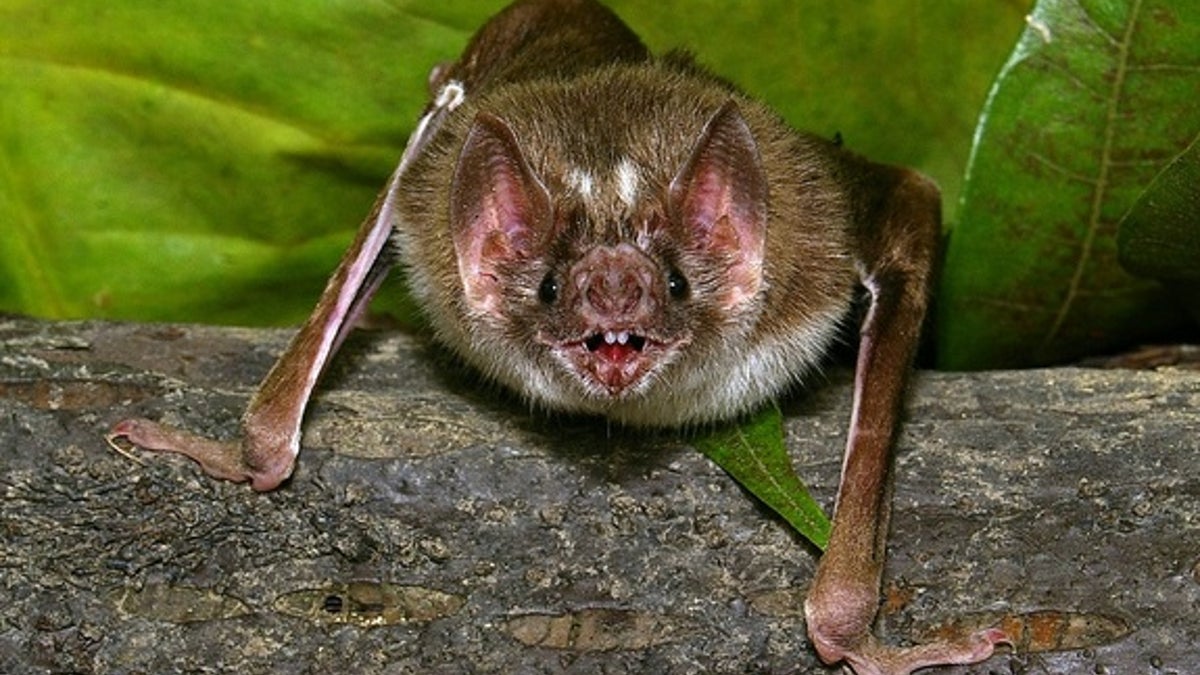
Rabies has been thought of as virtually 100-percent fatal unless treated immediately, but new research shows that a small number of isolated Peruvians have natural immunity from the animal-transmitted disease.
Researchers at the Centers for Disease Control and Prevention found that one in 15 people living in the remote Amazonian region in Peru were protected without medical intervention against the virus that kills more than 55,000 people globally every year.
Their trick: Vampire bats exposed the remote Peruvians to enough of the rabies virus to confer resistance, but not enough to kill them.
"Our results open the door to the idea that there may be some type of natural resistance or enhanced immune response in certain communities regularly exposed to the disease," Amy Gilbert, a researcher with the CDC's National Center for Emerging and Zoonotic Infectious Diseases and co-lead study author, said in a statement. "This means there may be ways to develop effective treatments that can save lives in areas where rabies remains a persistent cause of death." [Infographic: Leading Causes of Death]
Rabies immunity
Rabies is a neurological disease transmitted from animals to humans by infected-saliva exposure through bites or scratches. However, the disease can be prevented through immunization within hours of exposure.
"The new news here is that in areas in the world where rabies is endemic and there aren't vaccinations, there may be some resistance," James Kazura, president of the American Society of Tropical Medicine and Hygiene and global health professor at Case Western Reserve University, told LiveScience in a telephone interview.
To this end, the researchers said they planned to expand their study into other rabies-exposed populations to determine if resistance may be more common worldwide.
Previous work suggested that some people could naturally produce antibodies against the virus, including Inuit hunters in the Canadian Arctic and raccoon hunters in Florida.
In the Peruvian study, Gilbert and colleagues wanted to look at interactions between bats and humans to better understand not only rabies, but also emerging diseases.
The researchers unexpectedly found six people out of 92 interviewed who had developed antibodies against rabies, even though they had never been vaccinated.
"Yes, we were surprised; no, we weren't surprised," Gilbert told LiveScience about the results in a telephone interview
The two Peruvian communities under study suffer from endemic rabies that comes from vampire bat populations, so it was no surprise that the people had exposure to rabies through bites and scratches. As such, they'd be expected to carry virus antibodies.
The surprise came when the researchers found actual immunity in humans (they weren't sick), dead ends for the virus since the incidental hosts typically don't pass along the infection.
"It's not thought that incidental hosts develop immunity to the virus," Gilbert said. Reservoir hosts like vampire bats have developed a natural immune response because of the regular exposure to the virus. However, incidental hosts aren’t exposed to the virus, so have built up little, if any, immunity.
Secrets of immunity?
The Peruvians don't hold secrets on how to overcome rabies, in fact, most of them seem to know little about the disease or its mode of transmission. [10 Deadly Diseases That Hopped Across Species]
"Very few reported that they would do things recommended such as washing a wound with soap and water or visiting a health care provider," said Brett Peterson, a CDC researcher and co-lead author of the study. "There did seem to be a lack of knowledge of the risk of rabies and proper precautionary measures."
In response, the Peruvian Ministry of Health, which collaborated with the CDC on the study, started a pre-exposure immunization campaign for at-risk residents in the region, Peterson said.
"Some of this new data we are presenting may influence the way people think about preventing rabies," he added.
The researchers also said that Peruvians likely don't have a genetic leg-up on rabies resistance. However, Rodney Willoughby Jr., pediatric researcher at the Medical College of Wisconsin, wrote in an accompanying editorial that studying the genetics of these naturally rabies-resistant Peruvians could reveal the biochemical and physiological reasons for the resistance.
Having antibodies to the rabies virus doesn’t mean you're off the hook for the disease.
"Despite finding antibodies, we don't believe these people are protected," Gilbert said.
"The antibodies are an immune response so you could say they have some immunity; even though they have some immunity, it may not be fully protective," Gilbert said. Researchers don’t agree on the degree to which antibodies protect against disease.
"Anyone who has contact needs to seek medical advice and seek treatment," she said.
The research is detailed online Aug. 1 in the American Journal of Tropical Medicine and Hygiene.
Copyright 2012 LiveScience, a TechMediaNetwork company. All rights reserved. This material may not be published, broadcast, rewritten or redistributed.








































